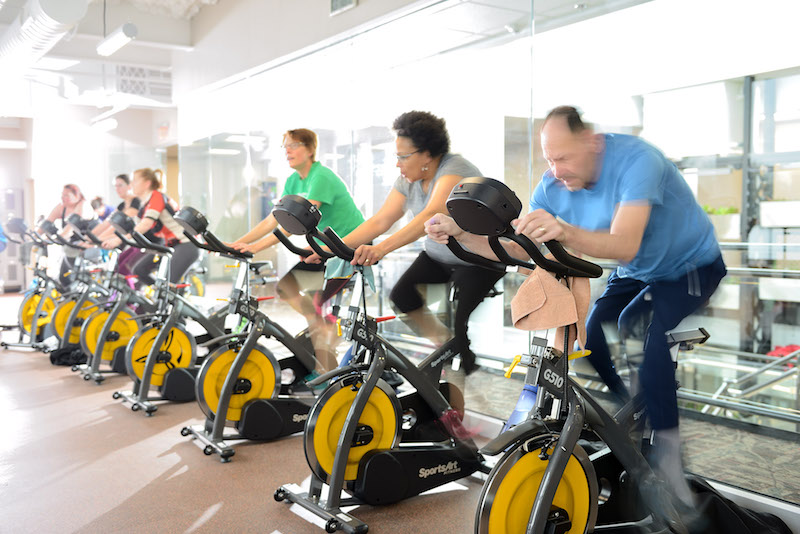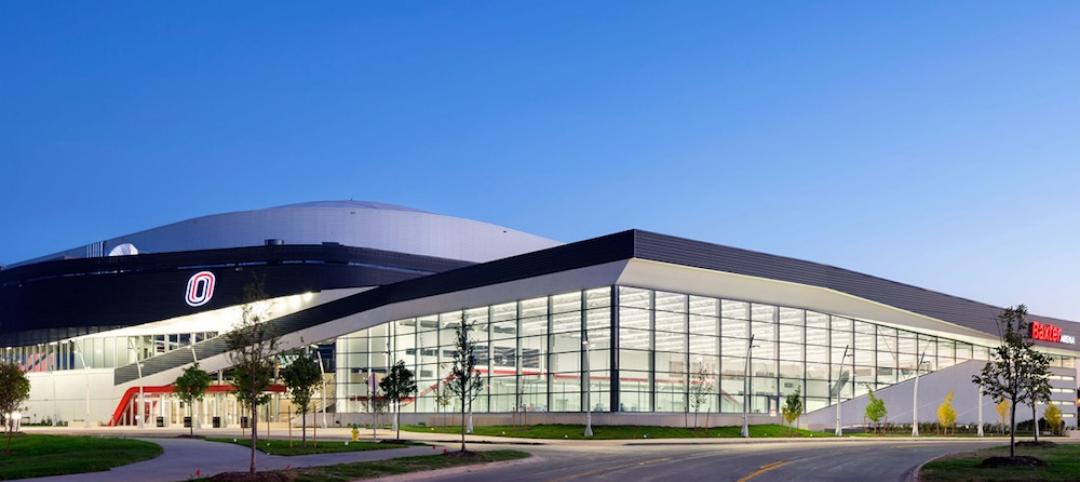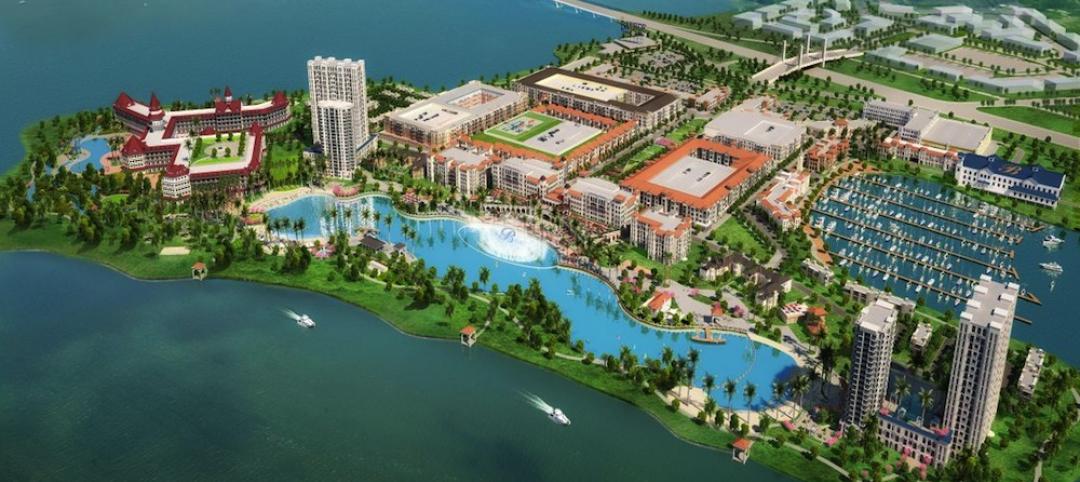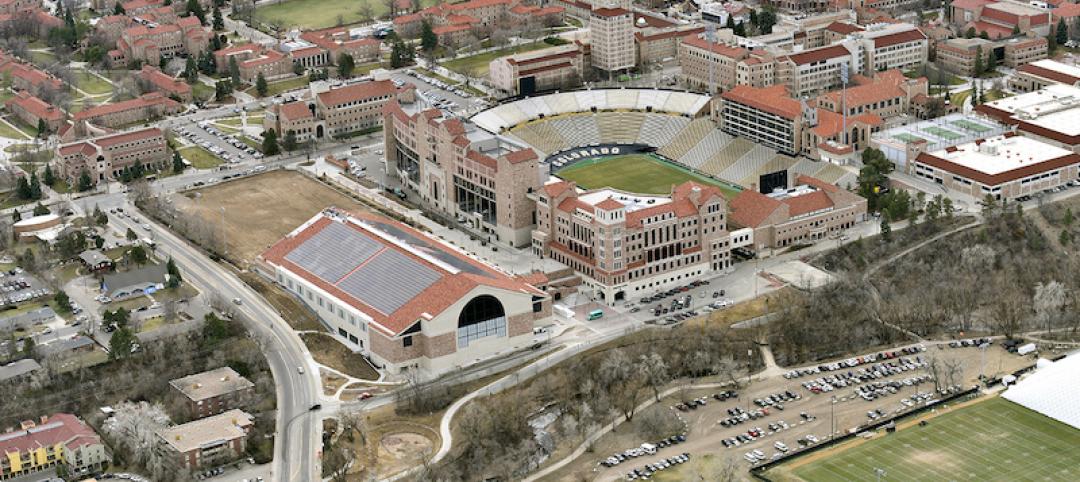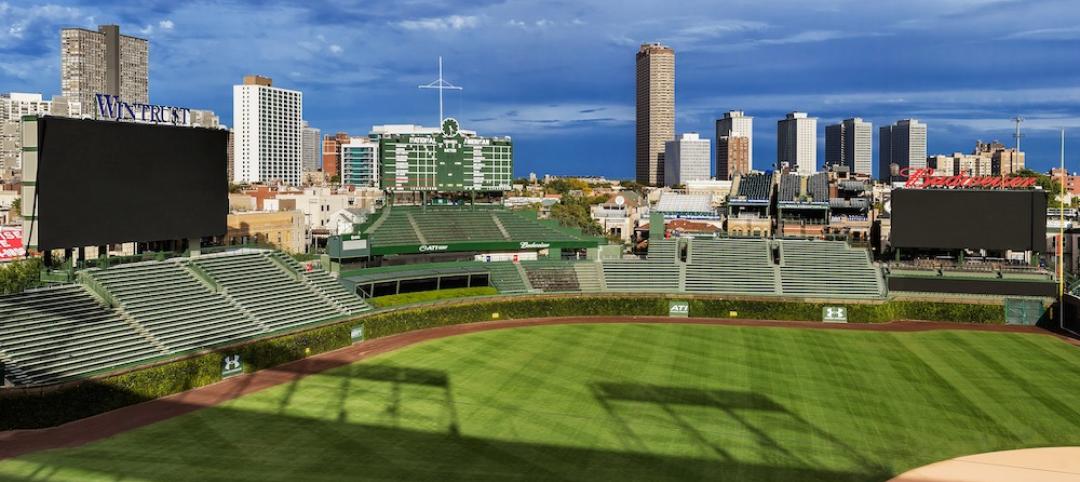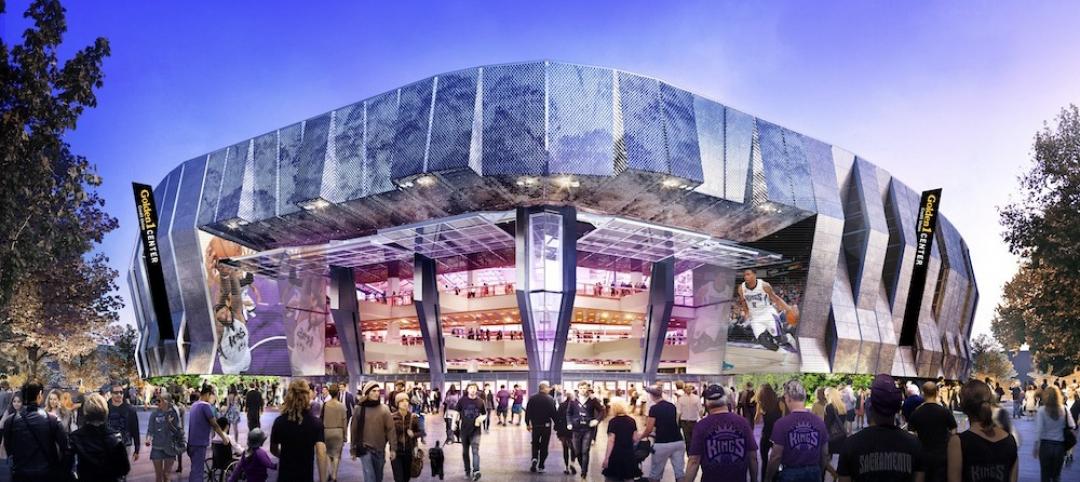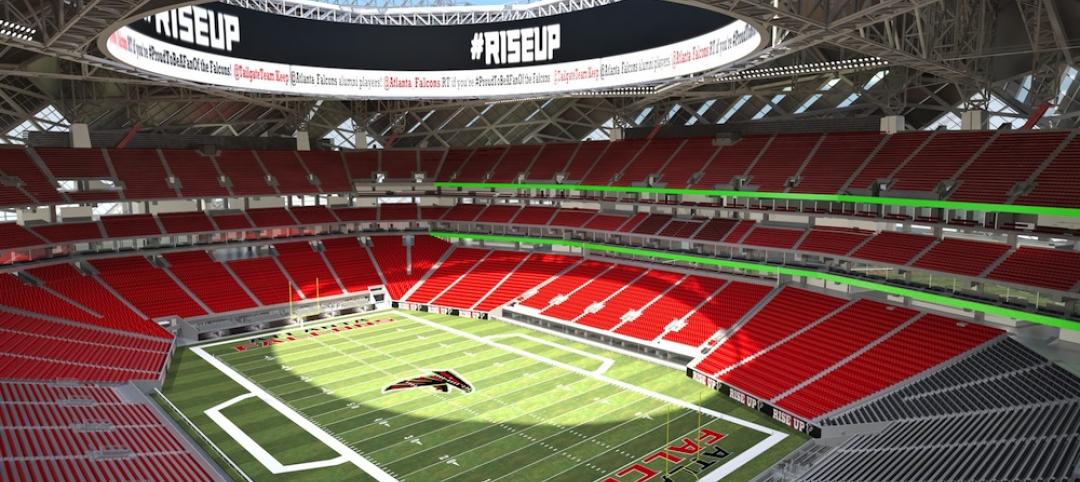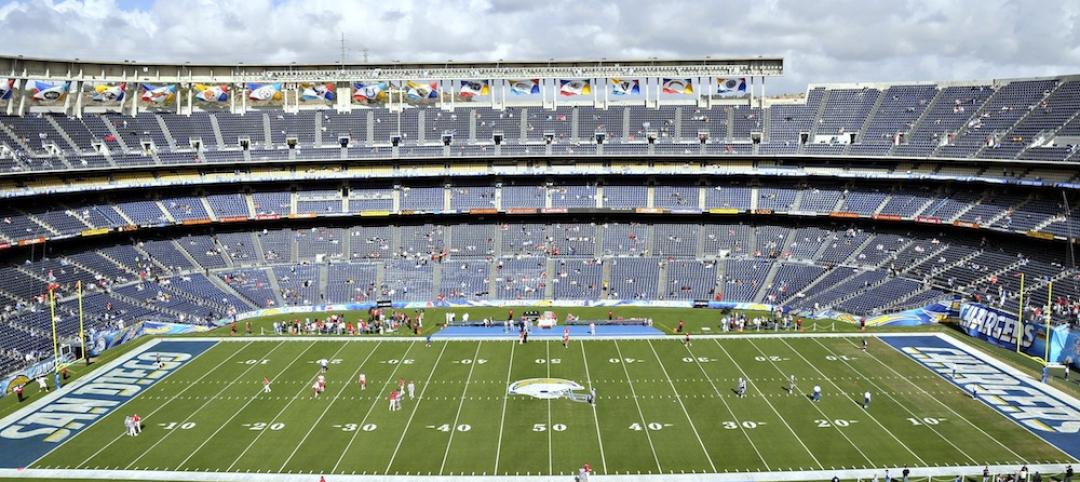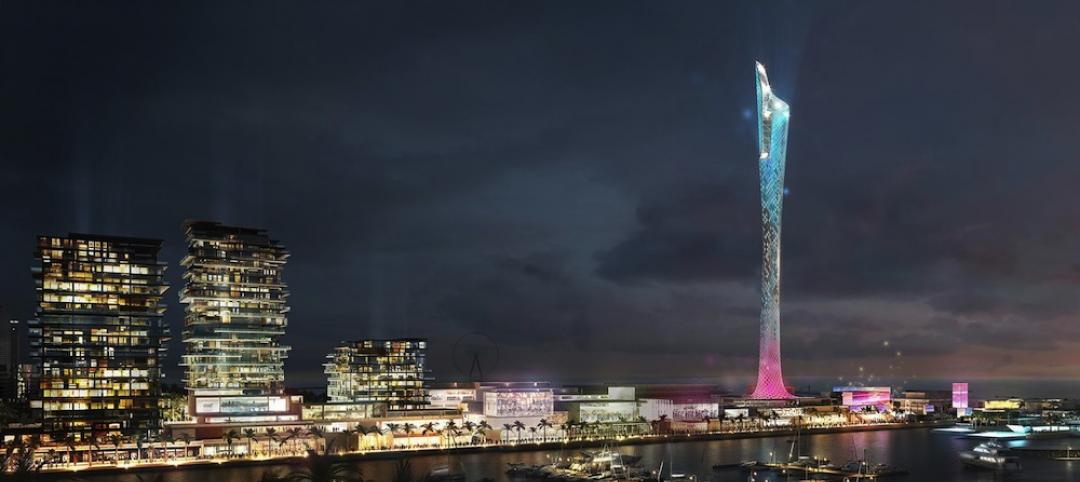Every day, in gyms across America, people of all ages and shapes exercise on treadmills, bicycles, steppers, and elliptical machines that provide their users with digital readouts of how fast they are going and how many calories they are burning.
And now, a new 1,300-sf gym that’s part of The Market at I-Square, a mixed-use development in Rochester, N.Y., is using the energy generated by members on its 17 spin bikes, two recumbent bikes, and two ellipticals as one of the sources powering The Imaginarium, a two-story, 9,000-sf Net Zero Energy arts-and-sciences center within the development that showcases earth-friendly practices, and includes the ECO Gym on its second floor, a rooftop kitchen and bar, a vertical garden, and a virtual-reality lounge.
ECO gym, which opened a few weeks ago, is expected to generate 3,660 kWhs of electricity annually, or about 5% of the Imaginarium’s annual demand. The Imaginarium gets another 35% of its power from small wind turbines with a power rating of 8.9 kWs. Other renewable energy sources for this center include 92 solar panels, and a geothermal heating and cooling system.
The exercise machines were provided by SportsArt America, whose U.S. headquarters is in Mukilteo, Wash. SportsArt started producing fitness equipment in 1977 and launched its ECO line in 2014.
Each piece of equipment has an interface where users can track their “human watts” (the amount of electricity a user is generating by using the equipment) and compare these to the amount of electricity the equipment returns to the grid. The company estimates that about 74% of the energy generated during a workout on its equipment is captured for use to power the building.
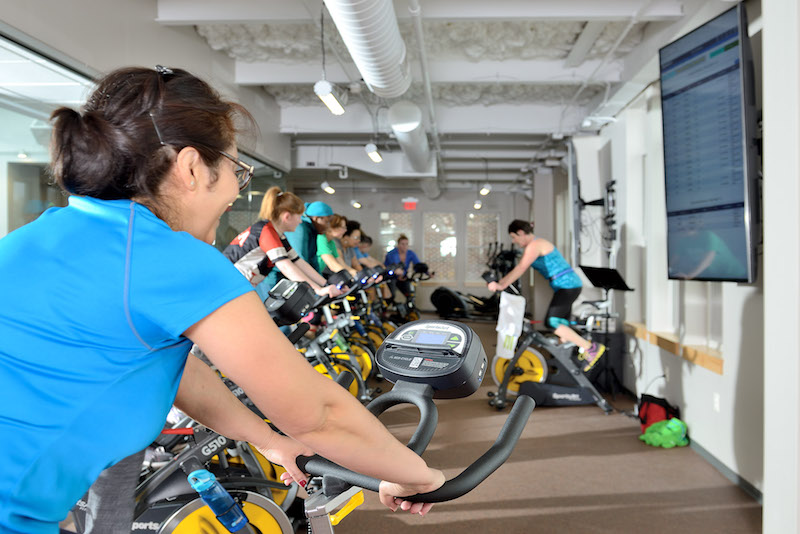
The gym's equipment lets users track their “human watts” against the amount of eletricity returned to the grid. The equipment captures about 74% of what's generated for the building's energy consumption. Image: SportsArt
Until recently, SportsArt—which does business in over 70 countries and has offices in the U.K., Switzerland, Taiwan, and Beijing—has placed its equipment mostly in gyms and hotels in Europe and Asia. It is now eyeing North America for growth.
The first U.S. gym to take on the company’s ECO-POWR cardio line of spinning bikes was Sacramento (Calif.) Eco Fitness, which opened in December 2016. At the time of that opening, SportsArt America estimated that a single hour-long workout would produce more than 160 watts per hour per unit of electricity.
Ivo Grossi, its CEO, says SportsArt America’s main target markets for expansion in the U.S. are independent health clubs and studios; colleges and universities; hotels, and multi-housing and residential projects. (On its website, SportsArt America has a room-planning page that allows homeowners to digitally place its equipment in different residential room configurations.)
“We look forward to bringing sustainability to the forefront of the fitness industry. We aspire to be the Tesla of fitness, which is a vision in line with the wants of the largest demographic group flocking to the fitness industry: The Millennials,” says Grossi.
I-Square and SportsArt America were involved in the interior design of ECO Gym in Rochester, whose Building Team included Meehan Architecture (architect), LeFrois Builders & Developers (GC), CM Armitage Electrical Contracting (EE), Kenron Industrial Air Conditioning (HVAC), and Green Leaf Professional Services (IT).
Related Stories
BIM and Information Technology | May 2, 2016
How HDR used computational design tools to create Omaha's UNO Baxter Arena
Three years after writing a white paper about designing an arena for the University of Nebraska Omaha, HDR's Matt Goldsberry says it's time to cherry-pick the best problem-solving workflows.
Mixed-Use | May 1, 2016
A man-made lagoon with a Bellagio-like fountain will be the highlight of a mixed-use project outside Dallas
Construction will soon begin on housing, retail, and office spaces.
Sports and Recreational Facilities | Apr 17, 2016
An expanded and renovated complex brings together U. of Colorado’s sports programs
This two-year project enhances the experiences of athletes and fans alike.
Sports and Recreational Facilities | Apr 13, 2016
Cubs take a measured approach when planning HD video boards
Along with the mammoth and super-sharp video boards, Wrigley Field's 1060 Project includes renovated bleachers, upgraded player amenities, and more concourses, decks, and concessions.
Sports and Recreational Facilities | Apr 13, 2016
More than a game: 4 ways sports teams are adapting to changing fan preferences
As the cost of tickets, parking, and concessions skyrockets, while home theater technology becomes more affordable, fans wonder: Why even bother going to the game? Here’s how progressive sports owners and Building Teams are packing stadium seats.
Sports and Recreational Facilities | Apr 11, 2016
Chicago Cubs continue Wrigley Field renovations with new clubhouse
The team found 30,000 sf of space underneath an old parking lot, nearly tripling the size of the old clubhouse.
Sports and Recreational Facilities | Apr 6, 2016
Las Vegas debuts another new arena, with a number of ‘firsts’
The gambling mecca has its eyes on attracting a pro sports team.
Sports and Recreational Facilities | Apr 5, 2016
The importance of true cost-modeling for sports facilities
Many factors prevent sports facilities from immediate profitability. Rider Levett Bucknall’s Peter Knowles and Steve Kelly write that cost modeling, the process of estimating construction expenses by analyzing fixed and variable expenses, can push facility development to financial success.
Sports and Recreational Facilities | Apr 1, 2016
San Diego Chargers announce plan for downtown stadium and convention center
The project will be funded primarily by a tax increase on hotel stays.
Sports and Recreational Facilities | Mar 31, 2016
An extreme sports tower for climbing and BASE jumping is proposed for Dubai’s waterfront
The design incorporates Everest-like base camps for different skill levels.


